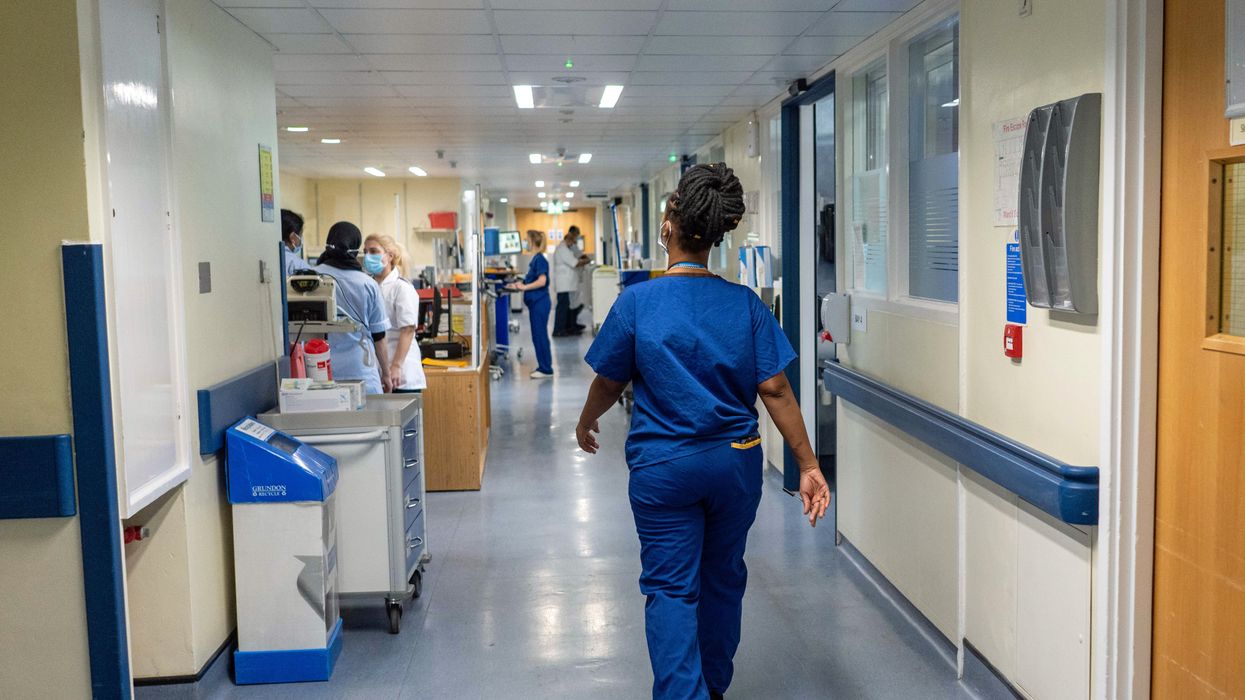‘Women's healthcare needs should not compromised in the name of inclusivity,’ writes Bella Wallersteiner

‘Women's healthcare needs should not compromised in the name of inclusivity,’ writes Bella Wallersteiner
|PA
The UK has the largest gender health gap in the G20
Don't Miss
Most Read
As a woman who has grappled with gynaecological health issues, the recent debate over proposed changes to the NHS Constitution hits close to home.
The Department of Health and Social Care's (DHSC) suggestion to allow transgender patients to be excluded from female single-sex wards raises critical questions about the importance of sex-based healthcare for women.
For far too long, women's healthcare needs have been sidelined in favour of political correctness and inclusivity agendas. But let's not forget the reality: sex matters in healthcare, especially when it comes to intimate and sensitive medical procedures.
Imagine finding yourself in a vulnerable position, seeking treatment for a gynaecological condition, only to be confronted with the discomfort of sharing a ward with someone of the opposite biological sex. This scenario is not only distressing but can also undermine the trust and confidence women have in the healthcare system.
The DHSC's proposal to allow patients to request intimate care from someone of the same 'biological sex' acknowledges this fundamental need for privacy and dignity. It's about respecting the boundaries and preferences of patients, particularly when it comes to matters as personal as healthcare.

The DHSC's suggestion to allow transgender patients to be excluded from female single-sex wards raises questions about the importance of sex-based healthcare for women
|PA
As someone who has navigated the complexities of gynaecological healthcare, I can attest to the importance of feeling safe and secure in a hospital environment. In 2017, I underwent invasive treatment for endometriosis. Single-sex wards provide a sanctuary for women to receive the care they need without the added stress or anxiety of sharing space with individuals of the opposite sex.
Prioritising sex-based healthcare for women is not about discrimination; it's about ensuring equitable access to quality care. Women have unique healthcare needs that must be addressed with sensitivity and understanding, and single-sex wards play a crucial role in meeting those needs.
The proposed changes to the NHS Constitution should not be dismissed as a mere political ploy or culture war. Instead, they highlight a fundamental principle: the right of women to receive healthcare in a safe and dignified manner.
In the Victorian era, women who dared to express discomfort or distress were often labelled as "hysterical." This catch-all diagnosis was used to discredit women's complaints, attributing their symptoms to emotional instability rather than acknowledging their legitimate medical concerns. From headaches to heart palpitations, any ailment could be written off as a manifestation of hysteria, effectively silencing women and denying them access to proper care.
Fast forward to the 21st century, and while the language may have evolved, the underlying issues remain. Whether it's waiting years for help, being dismissed by doctors, or feeling too embarrassed to discuss their symptoms, many women have been left feeling overlooked and misunderstood.
MORE AGENDA-SETTING OPINION: An image from inside a hospital ward | PA
An image from inside a hospital ward | PAThe consequences of this neglect are profound. Conditions like endometriosis and premenstrual dysphoric disorder (PMDD) often go undiagnosed or misdiagnosed, leaving women to suffer in silence. The pandemic has only exacerbated these issues, with women turning to social media for medical information when access to healthcare became limited.
The statistics speak volumes: the UK has the largest gender health gap in the G20, with women spending nearly a quarter of their lives in poor health compared to a fifth for men. Shockingly, just 2.1 per cent of publicly funded medical research is dedicated to women's reproductive health and childbirth.
But it's not just about research; it's about access to care. Women face barriers at every turn, from long waiting lists for gynaecological services to fragmented healthcare systems that fail to address their comprehensive needs. Much of this is likely to have been exacerbated by a lack of female representation in leadership positions: 80 per cent of the NHS workforce is female, yet women hold only a tiny fraction of senior roles. In a specialism like obstetrics and gynaecology, where care is exclusively for women, the fact that women have been historically marginalised is nothing short of extraordinary.
Our political leaders have been too weak to stand up for women's rights in healthcare settings. This Government has overseen the NHS's move towards gender-neutral language with dangerous attempts to "desex" language on advice pages related to ovarian, womb, and cervical cancers which risks obscuring critical health messages.
But common sense may finally be making a comeback. As the consultation period unfolds, the Government should be going further to prioritise the well-being of women and uphold the principles of sex-based healthcare by adopting former Prime Minister Liz Truss's proposed bill aiming to redefine sex as "biological" in law.
Truss's bill seeks to address a pressing concern: the erosion of sex-based protections that are essential for women's health and safety. By defining sex as biological, the bill would prevent biological males who identify as females from accessing female-only spaces, including toilets, hospital wards, changing rooms, and sports competitions. This is not about discrimination but about preserving the integrity of spaces designed to cater to the specific needs and vulnerabilities of women.
Critics may argue that such measures are discriminatory or transphobic. However, it's essential to recognise that safeguarding sex-based healthcare does not equate to denying the rights or dignity of transgender individuals. It's about ensuring that women's specific healthcare needs are not overlooked or compromised in the name of inclusivity.
In a time when women's healthcare is already facing significant challenges, from inadequate funding to disparities in access and outcomes, it's crucial to prioritise measures that protect sex-based healthcare. Truss's bill offers a practical and necessary step towards achieving this goal.
In the end, it's not about exclusion or divisiveness; it's about ensuring that women feel respected, valued, and supported. And that starts with prioritising single-sex wards and sex-based healthcare for women in our hospitals.










